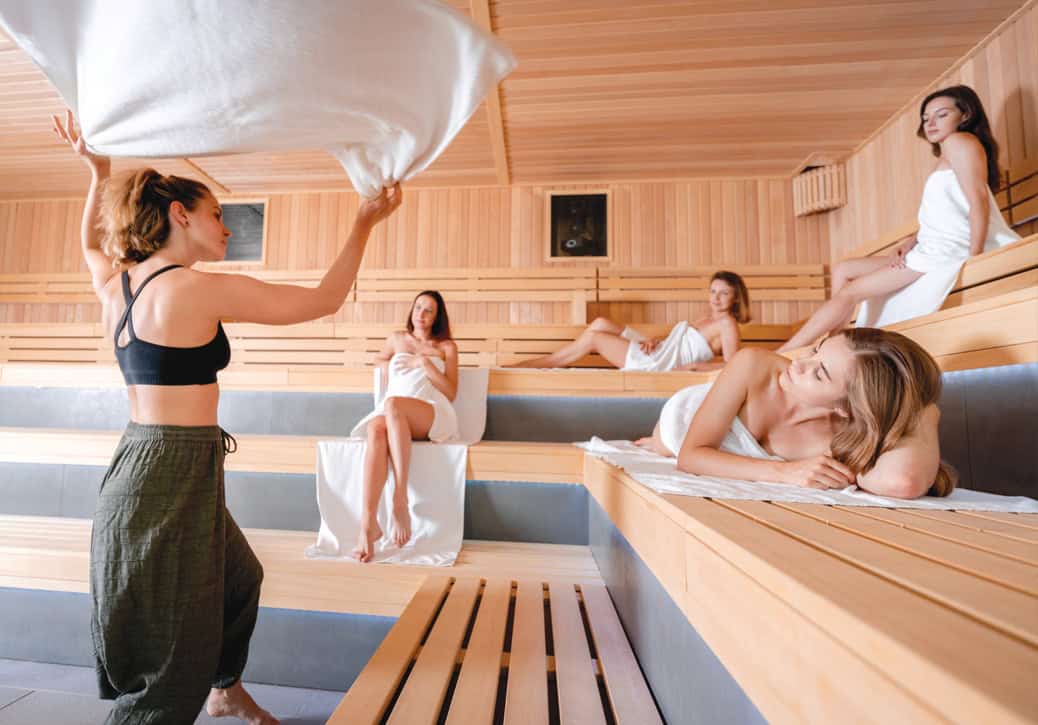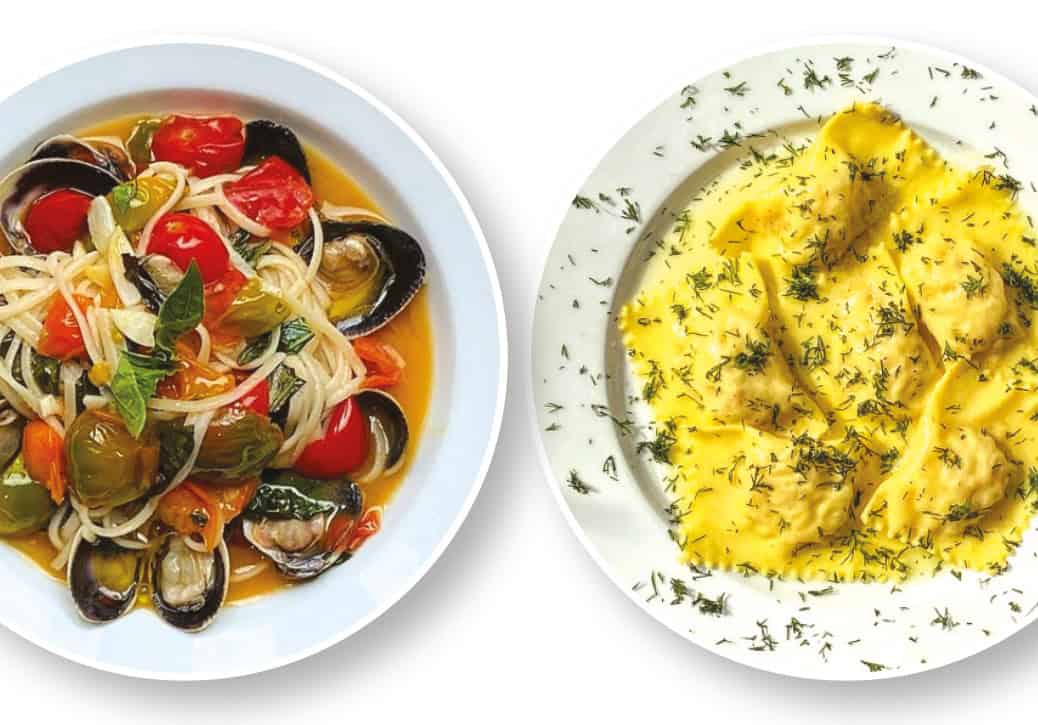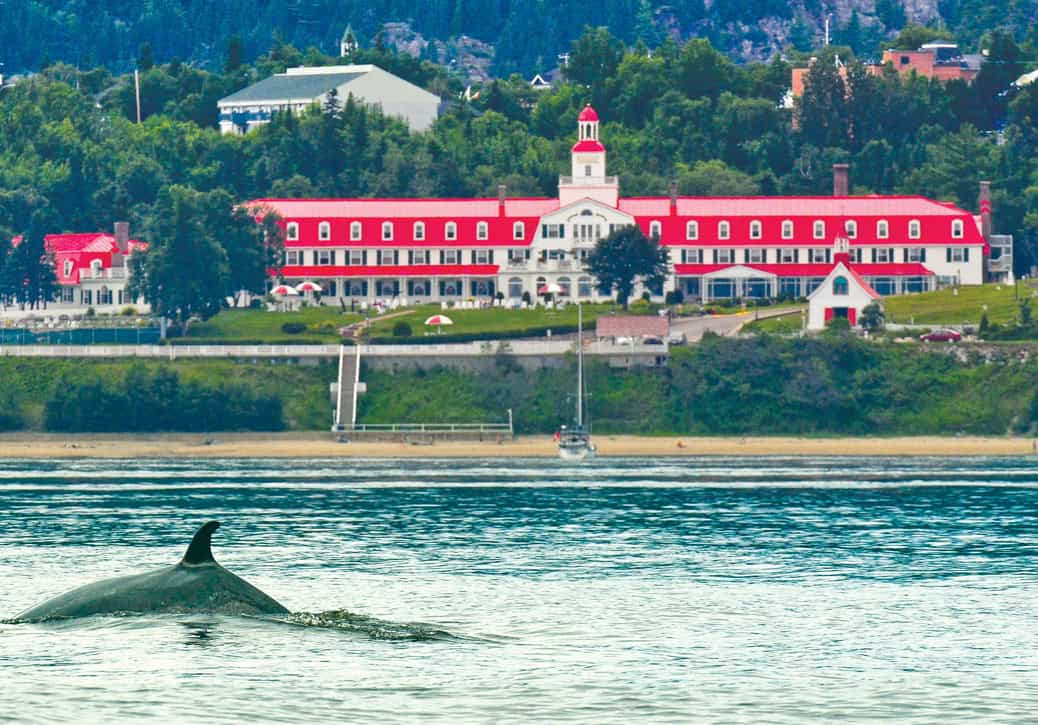By Keith Edwards
 Mythos Mosel Wine Festival
Mythos Mosel Wine Festival
I’m soaking up the spring sunshine and drifting lazily down the Mosel River in a small boat with my genial host, Stefan Weise. “Now try this 25-year-old Riesling,” he tells me. It’s astonishing! The battered, mildewed label of the Reinhold Haart Piesporter Goldtropfchen Riesling gives not the slightest hint of the still vibrant and fresh light golden wine within. This is just one of many misconceptions that will disappear over the next few days, as effortlessly and pleasurably as that remarkable wine.
The combination of high sugar content and robust acid in the wine, Stefan tells me, has preserved it. And he should know: Stefan has been conducting bespoke wine tours after a career as a sommelier in some pretty fancy restaurants; in 2006, he was voted Sommelier of the Year by Gault Millau. After sipping samples of the dozen or so bottles he produces—including a 2011 Riesling Spätlese from his own vineyards—I conclude (somewhat hazily) that I have stumbled on the secret of effortless learning: in vino educare.
My education continues later at the second annual Mythos Mosel  Wine Festival. At the opening event in the imposing Schloss Lieser, a formal tail-coated choir sets the tone as we munch on canapés and sip sparkling wine. Then it’s down to the castle’s courtyard, where local chefs and vinters are strutting their stuff. I’m nibbling on an exotic creation of goose liver, hazelnut cream with asparagus marinated in hazelnut oil and balsamic vinegar (from Chef Wolfgang Becker of Becker’s Restaurant and Hotel in Trier), when I fall into conversation with the local mayor. And then it dawns on me: This is not an event for tourists; it’s a genuine local affair. It’s an outward expression of what is deep in the DNA of those who live in these pretty-as-a-postcard, flower-decked villages nestled under the vertiginous vineyards of the riverbanks. This is a celebration of wine culture and tradition reaching back to Roman times.
Wine Festival. At the opening event in the imposing Schloss Lieser, a formal tail-coated choir sets the tone as we munch on canapés and sip sparkling wine. Then it’s down to the castle’s courtyard, where local chefs and vinters are strutting their stuff. I’m nibbling on an exotic creation of goose liver, hazelnut cream with asparagus marinated in hazelnut oil and balsamic vinegar (from Chef Wolfgang Becker of Becker’s Restaurant and Hotel in Trier), when I fall into conversation with the local mayor. And then it dawns on me: This is not an event for tourists; it’s a genuine local affair. It’s an outward expression of what is deep in the DNA of those who live in these pretty-as-a-postcard, flower-decked villages nestled under the vertiginous vineyards of the riverbanks. This is a celebration of wine culture and tradition reaching back to Roman times.
But change is in the air, too. Today’s young winemakers are keen to tell me about their vision of the future of Riesling, one that’s drier and more rooted in the terroir of their steep pocket vineyards.
While on tour later the next day, I end up in conversation with the charming and rather aristocratic Sofia Thanisch, great-granddaughter of Dr. Hugo Thanisch, the founder of the renowned eponymous winery. A bottle of their magnificent 2006 Bernkasteler Badstube Riesling Spatlëse ends up in my possession.
Entering another world
After the indulgent hurly-burly of the festival, it was a delight to stumble on the laid-back and unpretentious riverside wine garden of Weingut Lehnert-Veit in Piesport. Peter Lehnert, whose family traces its wine heritage back to 1653, produces some wonderful wines for me to try. Their 2011 Falkenberg Spätburgunder (Pinot Noir) arrests me with its silky tannins and complexity, and soon his wife is up a ladder in their small warehouse, fishing out a couple of bottles for my now (mostly liquid) baggage.
If there were any lingering myths, they were finally dispelled after meeting Julia Bertram, a 25-year-old former German Wine Queen and a member of the fourth generation of her winemaking family in the Ahr valley. This disarmingly charming woman has just opened her own winery. “I want to be loud, well organized and in the top 20 producers in Germany,” she tells me. I try her first vintage, the 2013 Fass Ein Spätburgunder, a remarkable burgundy-style wine, complex with strong minerality. She assures me the 2014 will be even better.
 Later, in the town of Traben-Trarbach, I wonder if I’ve fallen through a gap in the space-time continuum. I feel like I’m back in the Belle Époque era as I stroll through the dark- panelled lobby of the Bellevue Hotel. At one time, staff here chalked the names of their guests on a blackboard. The current owner, Matthias Ganter, tells me this architectural gem has survived intact thanks to the stubbornness of an earlier owner, who refused to fall in with the modernizing trend that swept Germany in the late 1940s. It is now the only perfect example in the whole country of a hotel from this period.
Later, in the town of Traben-Trarbach, I wonder if I’ve fallen through a gap in the space-time continuum. I feel like I’m back in the Belle Époque era as I stroll through the dark- panelled lobby of the Bellevue Hotel. At one time, staff here chalked the names of their guests on a blackboard. The current owner, Matthias Ganter, tells me this architectural gem has survived intact thanks to the stubbornness of an earlier owner, who refused to fall in with the modernizing trend that swept Germany in the late 1940s. It is now the only perfect example in the whole country of a hotel from this period.
But, design architecture aside, I’m here to sample the cuisine of Chef Matthias Meurer, the 31-year-old rising star who presides over the Michelin-starred Restaurant Clauss-Feist. A native of Mosel whose father was a winemaker, Meurer’s inspiration is to blend the best of French cuisine with the finest regional produce and local wines. I start with artful appetizers of poached quail egg topped with bacon; Scottish scallops with mashed onions and truffles follow. Meurer creates a wonderful fillet of sea bream with razorshell clams with a saffron fume and fennel salad, and a fillet of beef with Spätburgunder jus, pan-seared duck liver, grilled asparagus and celery purée. I hardly have room for the strawberry tartlet with ice cream, crème fraîche and lime and yogurt foam…but how could I refuse? And, in case I haven’t enjoyed the courses enough, each is accompanied by a flight of some of the finest local wines. Of course.
If you go: You can rent a car at Frankfurt, stop over in Mainz and then take a slow tour of the Ahr and Mosel valleys; or, alternatively, contact Stefan Weise for a bespoke tour. Accommodations along the way range from the luxurious to the clean and simple. Similarly, restaurants vary from the Michelin starred to informal wine gardens where you can relax with a glass of Riesling or Pinot Noir and a piece of wild boar sausage.













